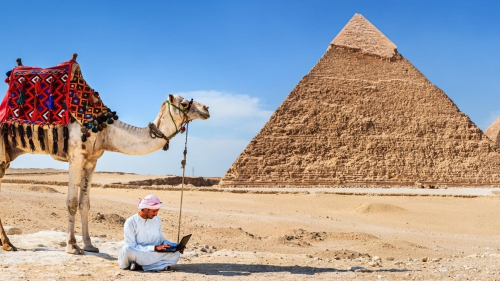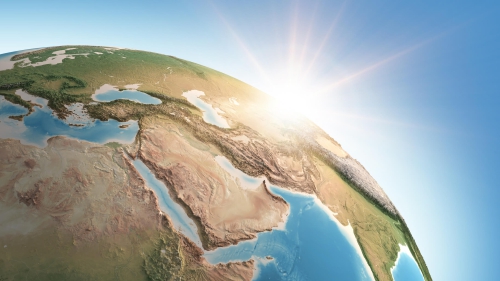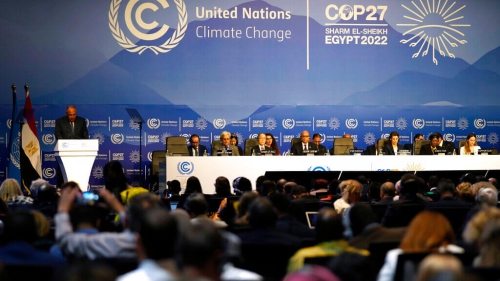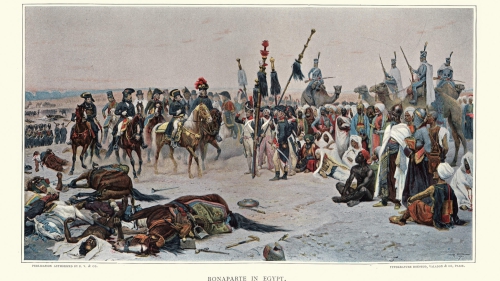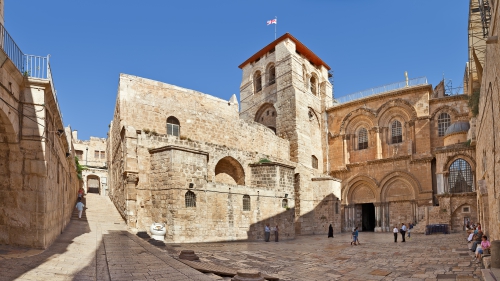No Democracy Without Risks
Many in the Islamic movement in Egypt anxiously awaited word on the legalization of Islamic parties. In fact, some former members of the extremist Al-Gama'a Al Islamiya and Hizb Al-Islamiya even began the process of registering two political parties for parliamentary elections scheduled for November 2000. But instead of legalization, they were surprised with the arrest of 20 prominent members of the Muslim Brotherhood.
The list of those arrested reads like a "who's who" of the Islamic movement. The sweep targeted leaders of the various professional associations representing the country's lawyers, doctors, engineers, pharmacists and other professions. Their crimes, according to the General Prosecutor's office, are "joining an illegal group, possessing publications endorsing the group's line of thought and action, and attempting to circumvent legality through the infiltration of professional associations with the aim of controlling them and diffusing the outlawed group's thought within them." Talk about prisoners of conscience.
The message is loud and clear. The authorities have no intention of softening on Islamists. Although, I don't like the term "Islamist," I shall use it for the lack of a better term.
Most of the secular liberals in the West -- even those who normally stand against any infringement of democracy -- will remain silent on this issue either because of their fear or ignorance of political Islam. The fact that the Brotherhood has never advocated violence or revolution is irrelevant. These self-proclaimed defenders of democracy come to the aid of everyone except when there is an Islamic tinge.
The secular world's obsession with a perceived threat of Islam and the undertaking to combat it at any cost has led many to forget that secular liberalism is but one of many world views. The assumption of secularists that everyone will wish to become liberals when given the freedom to choose, and the imposition of this view on others, only leads them to commit a variation of the very crime of which they accuse Islamists. What it amounts to is "secular fundamentalism." Needless to say, the stereotyping of Islamists as fundamentalists, terrorists, and inherently anti-modern is both inaccurate and counterproductive. Such a characterization and the corollary lack of dialogue in fact confer legitimacy on extremists.
Although the Islamic movement, like any other, has its share of radicals, the Muslim Brotherhood has sought, and continues to seek, peaceful and democratic change. The Brotherhood is committed to social justice, human rights, pluralism and an end to dictatorships. Clearly, the only way to know whether their "Islamic solution" is workable and goes beyond mere rhetoric is to give them the chance to participate in the electoral process. Such an opportunity was lost in Algeria and Turkey. Now the Egyptian authorities appear to be making sure that Brotherhood supporters don't even get their hopes up.
The current clampdown, which is the largest in the past four years against the banned but tolerated Brotherhood, is part of a greater strategy in place for some time. In 1992, the government stepped in by "tightening" election procedures in professional associations when the Brotherhood won the Egyptian Bar Association elections. To try to diffuse their influence and to ensure that the Brotherhood did not make any gains in the 1995 parliamentary elections, the authorities launched a similar clampdown in the early 1990's. That sweep culminated in a military court sentencing 54 prominent Brotherhood members to up to five years of hard labor. Despite the iron hand and the restrictions on association elections, the Brotherhood continues to control or has great influence over the vast majority of the country's 21 professional bodies. In fact, in May of this year the Brotherhood made some inroads into a traditional secularist stronghold, the Journalists Syndicate.
It must be understood that the Muslim world will not evolve into civil societies without some birth pangs. The West itself went through many experiences -- often bloody. We cannot be hypocritical for too much longer. Clearly, democracy comes with its risks. But democracy cannot be suspended every time there is a chance of Islamists coming to power.
To prevent the further radicalization of the Islamic movement in Egypt, it is imperative that the secular world, as well as Muslim world leadership, begin by accepting the global reality, whether they like it or not, that Islamists will be long-term players in the future of many Muslim nations. Consistent with this reality, the secular world must rethink its attitude toward moderate groups such as the Brotherhood.
In this rethinking, there must be a push for true democratic inclusion, a call for Egyptian government accountability for its poor human right record and a drive towards productive dialog between the government and opposition groups. Unless these steps are taken, the distrust between the Islamists and the secular world will only lead to international instability. Radicals who call for confrontation will replace movements such as the Brotherhood, which has striven for peaceful change for more than 65 years. The choice is up to the secular leadership in the Muslim world and the West.
Faisal Kutty is a Toronto lawyer and writer and is also a columnist for the Washington Report On Middle East Affairs













